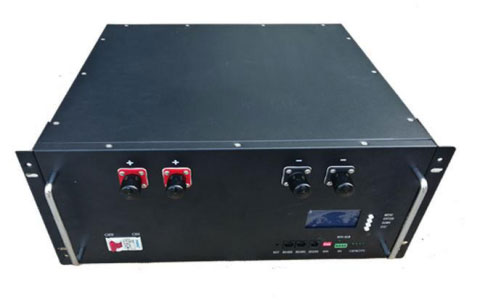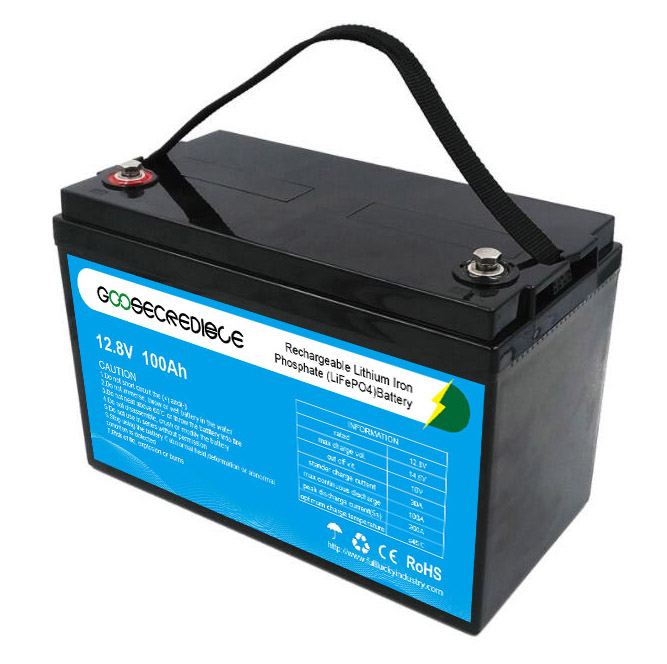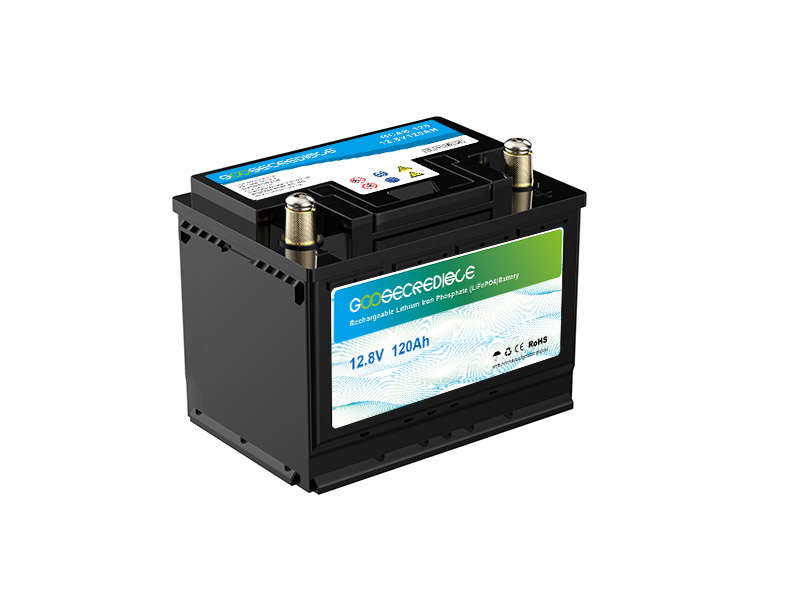Ինչպես ընտրել ճիշտ մեկնարկային մարտկոցի մատակարարը ձեր կարիքների համար
Choosing the right starter battery supplier is essential to ensure that you have access to high-quality products that meet your specific needs. With so many options available, it can be overwhelming to know where to start. Here are some key factors to consider when selecting a starter battery supplier for your needs:
Quality: The quality of the starter batteries offered by the supplier should be your top priority. Ensure that the supplier sources their batteries from reputable manufacturers and that they meet industry standards for performance and reliability.
Price: Price is always an important factor to consider when selecting a supplier. While it is important to find a supplier who offers competitive pricing, be cautious of suppliers who offer unrealistically low prices, as this could indicate poor quality or unethical practices.
Range of products: Consider whether the supplier offers a range of starter batteries to meet your specific needs. Look for suppliers who offer a variety of battery sizes and types, as well as batteries designed for different applications.
Customer service: It’s important to choose a supplier that provides excellent customer service. Look for suppliers who are responsive to your inquiries and concerns and have a reputation for providing timely and efficient support.
Delivery times: Consider the supplier’s delivery times and their ability to meet your specific needs. Look for suppliers who offer fast and reliable shipping, and who have a reputation for meeting delivery deadlines.
Warranty: Check whether the supplier offers warranties on their products. A supplier who offers a warranty demonstrates confidence in their products and provides peace of mind for the customer.
Reputation: Finally, consider the supplier’s reputation in the industry. Look for suppliers who have a track record of providing high-quality products and excellent customer service.
By taking these factors into consideration, you can choose a starter battery supplier that meets your needs and provides you with high-quality products and services.
Time: 2023-5-25
Are you looking for a reliable power storage solution? Look no further than the High-Capacity 12V 100Ah LiFePO4 lithium battery. This advanced battery technology offers several benefits over traditional lead-acid batteries, including longer lifespan, faster charging, and more efficient power delivery. At the heart of the High-Capacity 12V 100Ah LiFePO4 lithium battery is advanced lithium iron phosphate (LiFePO4) chemistry. This chemistry offers several advantages over other lithium chemistries, including exceptional safety, stability, and high energy density. This translates to a battery that is not only safer to use, but also capable of delivering reliable power for longer periods of time. One of the biggest advantages of the High-Capacity 12V 100Ah LiFePO4 lithium battery is its long lifespan. Unlike traditional lead-acid batteries, which typically last for 3-5 years, the High-Capacity 12V 100Ah LiFePO4 lithium battery can last for up to 10 years or more. This means you can rely on your battery to provide power for longer periods of time, without having to worry about replacing it as frequently. In addition to its long lifespan, the High-Capacity 12V 100Ah LiFePO4 lithium battery also offers faster charging times. This is because lithium batteries can accept higher charging currents than lead-acid batteries, which means you can charge your battery more quickly and get back to using it sooner. This is particularly useful in applications where downtime is not an option, such as emergency backup power systems. Another advantage of the High-Capacity 12V 100Ah LiFePO4 lithium battery is...
Time: 2023-7-8
With the rise in environmental consciousness and the need for sustainable transportation alternatives, electric scooters have gained immense popularity in recent years. These compact and eco-friendly vehicles offer a convenient mode of transportation for short distances. At the heart of an electric scooter lies its battery, which powers the vehicle efficiently and sustainably. The battery is the lifeblood of an electric scooter, providing the necessary energy to propel the vehicle forward. It is essential to understand the different types of batteries used in electric scooters to make an informed choice that aligns with one's requirements and environmental values. Lithium-ion (Li-ion) batteries have become the preferred choice for electric scooters due to their high energy density, lightweight, and long-lasting performance. These batteries offer a higher range, meaning riders can travel longer distances without worrying about running out of power. Additionally, Li-ion batteries can be recharged quickly, allowing riders to get back on the road in no time. Efficiency is a key consideration when it comes to electric scooter batteries. Li-ion batteries have a high charge-discharge efficiency, meaning less energy is wasted during the charging and discharging process. This ensures that the battery delivers maximum power to the motor, resulting in a smoother and more efficient ride. Moreover, Li-ion batteries have a longer lifespan compared to other battery types, such as lead-acid batteries. This reduces the frequency of battery replacements, resulting in cost savings and less environmental waste. The longevity of Li-ion batteries also enhances the overall sustainability...
Time: 2023-7-10
The development of high-capacity batteries has revolutionized various industries, including automotive, renewable energy, and consumer electronics. One such incredible innovation is the high-capacity 12V 100Ah LiFePO4 (Lithium Iron Phosphate) battery, which offers enhanced performance compared to traditional lead-acid batteries. LiFePO4 batteries are a type of lithium-ion battery that provides numerous advantages over other types. They are known for their high energy density, long lifespan, and excellent thermal stability. These batteries are also considered safer than other lithium-ion batteries, primarily due to their stable chemical structure, which prevents thermal runaway and potential explosions. The high-capacity 12V 100Ah LiFePO4 battery is specifically designed to meet the increasing demand for energy storage solutions in various applications. With a capacity of 100Ah, it can store a significant amount of energy, making it suitable for powering electric vehicles, solar energy systems, and off-grid power solutions. One of the key advantages of this battery is its enhanced performance. Compared to traditional lead-acid batteries, LiFePO4 batteries offer a higher energy density, allowing for a longer runtime and improved efficiency. This means that devices and vehicles powered by these batteries can operate for longer periods without the need for frequent recharging or replacement. Additionally, the high-capacity 12V 100Ah LiFePO4 battery has a much longer lifespan compared to lead-acid batteries. It can typically last for 2000 to 5000 charge-discharge cycles, depending on the depth of discharge and operating conditions. This extended lifespan reduces the overall cost of ownership and makes it a more sustainable and...
Time: 2023-5-22
If you’re looking for a reliable, long-lasting battery to power your devices or equipment, look no further than a 100Ah LiFePO4 lithium battery. This advanced battery technology offers numerous benefits over traditional lead-acid batteries, making it the perfect choice for a wide range of applications. What is a LiFePO4 Lithium Battery? LiFePO4 stands for lithium iron phosphate, which is the material used in the cathode of this type of battery. This material is much safer and more stable than other types of lithium-ion batteries, which reduces the risk of fire or explosion. Additionally, LiFePO4 batteries have a much longer cycle life compared to other types of batteries, which means they can be charged and discharged more times before they start to lose capacity. Benefits of a 100Ah LiFePO4 Lithium Battery There are numerous benefits to using a 100Ah LiFePO4 lithium battery. Here are just a few: 1. Long Life: LiFePO4 batteries have a much longer life than traditional lead-acid batteries. They can be charged and discharged over 2,000 times without losing capacity or performance. 2. Lightweight: LiFePO4 batteries are much lighter than comparable lead-acid batteries, making them easier to transport and install. 3. Safer: LiFePO4 batteries are much safer than other types of lithium-ion batteries. They have a lower risk of fire or explosion, and they don’t contain any toxic chemicals. 4. Fast Charging: LiFePO4 batteries can be charged much faster than traditional lead-acid batteries. They can be fully charged in as...
Time: 2023-8-29
The world has witnessed remarkable advancements in mobile digital lithium battery technology. These advancements have revolutionized the way we use our smartphones, tablets, and other portable electronic devices. With longer battery life, faster charging capabilities, and enhanced safety features, lithium batteries have become an essential component in our daily lives. One of the key areas of advancement in mobile digital lithium battery technology is the improvement in energy density. Energy density refers to the amount of energy that can be stored in a given volume or mass of a battery. With higher energy density, lithium batteries can provide longer battery life, allowing users to use their devices for extended periods without the need for frequent recharging. To achieve higher energy density, researchers have focused on developing new materials for lithium batteries. One such material is lithium iron phosphate, which offers significant advantages over traditional lithium-ion batteries. Lithium iron phosphate batteries have higher thermal stability, improved safety, and better power density, making them ideal for use in mobile devices. Another significant advancement in mobile digital lithium battery technology is the introduction of fast-charging capabilities. Traditional lithium-ion batteries often take several hours to fully charge, which can be inconvenient for users who are always on the go. However, with the advent of fast-charging technologies, such as Qualcomm's Quick Charge and Oppo's SuperVOOC, users can now charge their devices within minutes. Fast-charging technologies work by increasing the current that flows into the battery, allowing it to charge at a...
Time: 2024-12-31
With the global awareness of environmental protection and the deepening of the concept of sustainable development, electric vehicles, as representatives of clean energy vehicles, are changing our travel methods at an unprecedented speed. In this green travel revolution, electric vehicle batteries, as its core components, play a vital role. It not only determines the endurance and performance of electric vehicles, but also directly affects the popularity and user experience of electric vehicles. This article will explore the development status, technological progress, challenges and future development trends of electric vehicle batteries. 1. Development status of electric vehicle batteries At present, the mainstream electric vehicle batteries on the market are mainly divided into lead-acid batteries, nickel-hydrogen batteries, lithium-ion batteries (including lithium iron phosphate batteries and ternary lithium batteries) and other types. Among them, lithium-ion batteries have become the mainstream choice in the field of electric vehicles due to their high energy density, long cycle life, low self-discharge rate and environmental protection and pollution-free advantages. In particular, lithium iron phosphate batteries and ternary lithium batteries, the former are high in safety and low in cost, and are suitable for commercial vehicles such as buses and logistics vehicles; the latter have higher energy density and are suitable for the passenger car market that pursues long endurance. 2. Technological progress promotes industry development In recent years, electric vehicle battery technology has made significant progress. On the one hand, the energy density of batteries has been continuously improved, which has greatly increased the range of electric...
Time: 2023-4-26
A 12V LiFePO4 battery is a reliable power source for your devices that offers numerous benefits over other types of batteries. LiFePO4 batteries are a type of lithium-ion battery that uses a lithium iron phosphate cathode material. This technology provides a number of advantages, including higher energy density, lighter weight, longer cycle life, and improved safety compared to other types of lithium-ion batteries. One of the primary advantages of a 12V LiFePO4 battery is its high energy density. This means that it can store more energy in a smaller space than other types of batteries. This is important for applications where space is limited, such as in portable devices or vehicles. A LiFePO4 battery can also deliver high power output, which is important for applications that require a lot of energy in a short amount of time, such as starting a car engine. Another advantage of a 12V LiFePO4 battery is its lighter weight. The use of lithium iron phosphate cathode material allows for a lighter overall weight, which is important for portable devices and vehicles where weight is a critical factor. This also makes it easier to transport and install the battery. A 12V LiFePO4 battery also has a longer cycle life compared to other types of lithium-ion batteries. This means that it can be charged and discharged more times before it needs to be replaced. This is important for applications where the battery will be used frequently, such as in renewable energy systems...
Time: 2024-3-20
Electric off-road vehicles are now popular among off-road enthusiasts, but in the past, they were always worried about insufficient power, which was very disappointing. Fortunately, with the explosion of lithium battery technology, the battery life problem of electric off-road vehicles finally has a solution! Lithium batteries are simply a super gas station for electric off-road vehicles, making our off-road journey even more powerful! Lithium battery, a powerful assistant for electric off-road vehicles Speaking of lithium batteries, that’s a small but powerful guy. It is small in size and light in weight, but can store a large amount of electrical energy to provide long-lasting power for electric off-road vehicles. Imagine driving on a rugged mountain road. The lithium battery is like your personal energy pack, constantly cheering you up. How exciting! Great battery life, worry-free for long-distance off-roading With lithium batteries, the battery life of electric off-road vehicles is simply unreliable. We used to worry about insufficient power, but now we can boldly drive into the mountains and forests and enjoy the wonders of nature. The stability of the lithium battery is also very powerful. No matter how complicated the road conditions are, it can provide you with power steadily, making your cross-country journey smoother. Lithium battery technology is getting better and better Lithium battery technology is advancing rapidly, with higher energy density and better safety. This means that our electric off-road vehicles not only run farther, but are also safer and more reliable. The battery life is also...





















